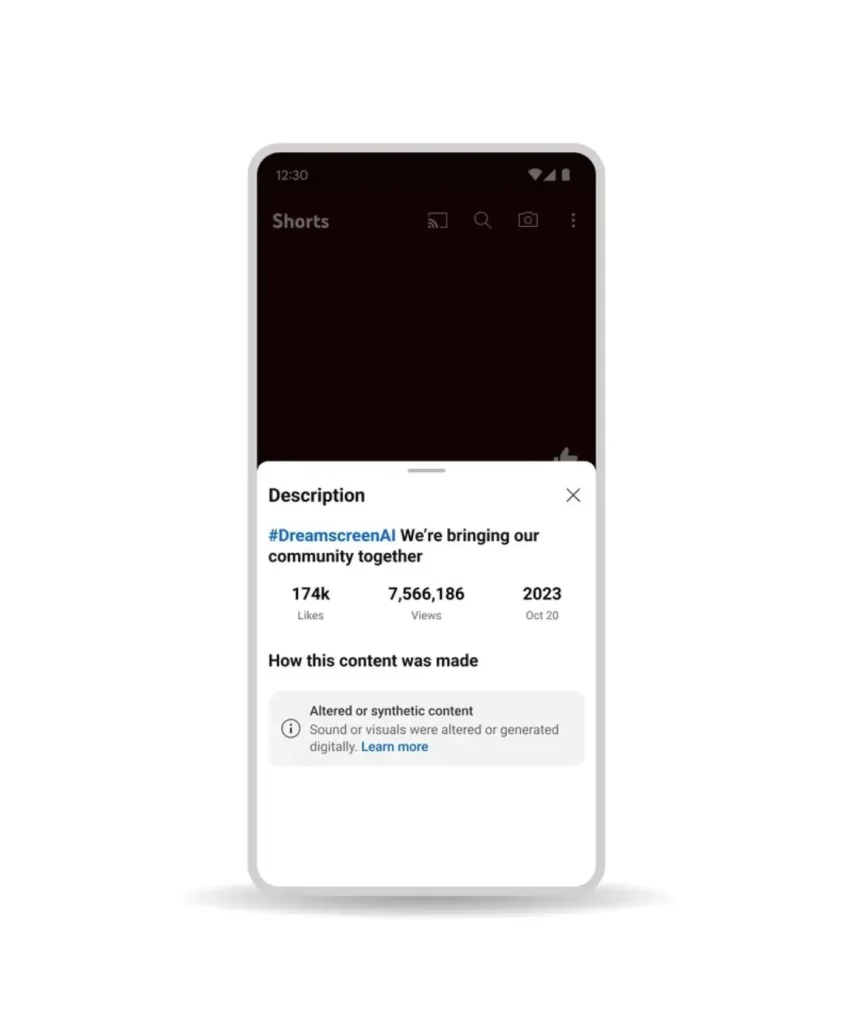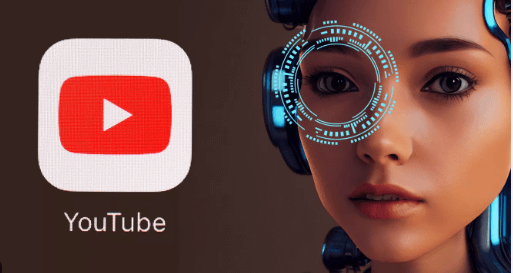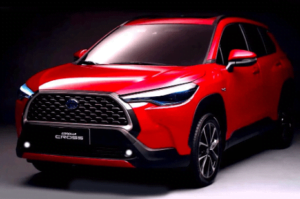YouTubers Now Need to Disclose AI Content in Their Videos to Get Paid.
Generative AI poses a threat to online information accuracy, prompting YouTube to combat misinformation.
The platform introduces guidelines mandating content creators to disclose AI-altered or synthesized content.
Here is what YouTube asked from its content creators:
“We’ll require creators to disclose when they’ve created altered or synthetic content that is realistic, including using AI tools. When creators upload content, we will have new options for them to select to indicate that it contains realistic altered or synthetic material. For example, this could be an AI-generated video that realistically depicts an event that never happened, or content showing someone saying or doing something they didn’t actually do.”

YouTube is introducing rules to combat the proliferation of misleading AI-generated videos, targeting faked footage, deepfakes, and copyright infringements. The new policies require content creators to disclose videos featuring realistic synthetic or AI-generated content.
Videos will be labeled in descriptions and players to indicate alterations. Failure to comply may result in content removal and penalties. Misleading content on crucial topics, such as elections and public health, must be flagged.
YouTube emphasizes consequences for non-disclosure, including potential content removal and suspension from the YouTube Partner Program. These rules are part of YouTube’s efforts to balance creativity and content moderation in the age of advancing generative AI.
Read More: iPhone 15 & 15 Pro Max PTA Tax November 2023 Update
Effective next month, creators must reveal the use of AI-generated elements, like deepfakes, to prevent potential misinformation.
Non-disclosure risks demonetization, video removal, or account suspension.
YouTube stresses the label’s insufficiency; videos violating guidelines may be removed regardless.
YouTube’s conventional content moderation policies remain in effect for AI-generated media. A label disclosing fabricated content won’t exempt the video from deletion if it violates YouTube’s community guidelines, addressing vulgarity, harmful imagery, or illicit information.
Users can request the removal of videos depicting AI-generated content resembling their likeness for safety or privacy concerns. Moderators will assess takedown requests based on unique identification. However, deepfakes parodying public figures may be treated leniently. AI-generated music infringing on an artist’s voice may face removal.
YouTube plans to introduce a feature simplifying the flagging of potentially copyright-infringing videos by partnered creators and record labels.
Read More: Cabinet Division Issues Warning for iPhone Users
Content from YouTube’s generative AI tools will be labeled, and users can request inaccurate AI-generated content removal, safeguarding against potential misuse of AI in videos.
Music partners retain the option to remove AI-generated music content.
As generative AI advances rapidly, the surge in tools for creating authentic-looking yet fake content poses a challenge for platforms like YouTube.
To navigate this, YouTube opts to encourage transparency among content creators regarding digital alterations. The platform plans a removal process for music partners, enabling them to request the elimination of AI-generated music mimicking an artist’s distinctive voice.
Initially available to labels in YouTube’s early AI music initiatives, this feature will later expand access to additional labels and distributors. The proactive approach aims to strike a balance between fostering creativity and enforcing content moderation on the Google-owned platform.
YouTube’s recent policy updates coincide with the increasing debate around AI in the entertainment sector. Last week, SAG-AFTRA reached a tentative deal on a new contract with the Alliance of Motion Picture and Television Producers (AMPTP), following months of rigorous negotiations on AI safeguards.
The new contract prominently features actors’ consent, necessitating studios to seek approval before generating digital replicas of actors. Moreover, the studios must disclose the purpose of the replica’s use, and actors are entitled to compensation for the creation and utilization of their digital likenesses, marking a significant step in addressing AI-related concerns in the industry.
Read More: Sony Announced New PS5 Slim Model
How to Disclose AI Content in Their Videos to Get Paid?
Here are clear steps to disclose AI content in your YouTube videos and ensure you get paid:
- Verbal Disclosure:
- Clearly state during your video that AI technology was used in creating certain elements.
- Verbally communicate to your audience about the AI-generated content.
- Text Disclosure in Video Description:
- Update your video description with a clear and detailed disclosure about the use of AI in your content.
- Explain how AI was utilized and its impact on the video.
- Utilize YouTube’s Labeling Tools:
- Take advantage of YouTube’s built-in tools for labeling content created with generative AI.
- Ensure that the labels are prominently visible to viewers.
- Adherence to YouTube Guidelines:
- Familiarize yourself with YouTube’s guidelines regarding AI content disclosure.
- Stay informed about any updates or changes to these guidelines.
- On-Screen Notification or Watermark:
- Consider adding an on-screen notification or watermark indicating the presence of AI-generated elements.
- This provides a visual cue to viewers about the use of AI technology.
- Educate Your Audience:
- Briefly educate your audience about AI technology and its role in creating certain aspects of the video.
- Foster transparency and understanding among your viewers.
Remember, failure to disclose AI content may result in demonetization, video removal, or account suspension on YouTube. Prioritize transparency and compliance to ensure a positive experience for both you and your audience.
YouTubers Now Need to Disclose AI Content in Their Videos to Get Paid has sturred the YouTubers that were generating AI content.
Note: The information above might not be accepted 100%. Please verify from your own sources. We will not be responsible for any kind of loss due to our content.
For more news, please visit Munafa Marketing.




